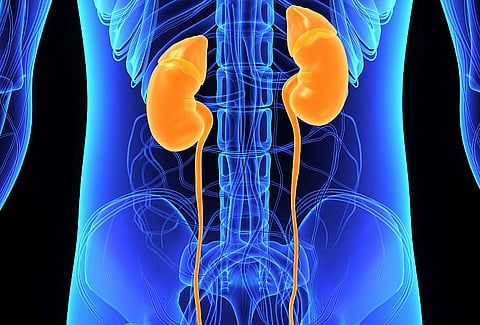Renal-Cell Cancer Disease-Free Survival Up With Sunitinib
TUESDAY, Oct. 11, 2016 (HealthDay News) -- The duration of disease-free survival is increased with sunitinib treatment for patients with locoregional, high-risk clear-cell renal-cell carcinoma, according to a study published online Oct. 10 in the New England Journal of Medicine. The research was published to coincide with the annual European Society of Medical Oncology Congress, held from Oct. 7 to 11 in Copenhagen, Denmark.
Alain Ravaud, M.D., Ph.D., from the Hôpital Saint André in Bordeaux, France, and colleagues conducted a randomized trial involving 615 patients with locoregional, high-risk clear-cell renal-cell carcinoma to receive sunitinib or placebo on a four-weeks on, two-weeks off schedule.
The researchers found that the median duration of disease-free survival was 6.8 and 5.6 years in the sunitinib and placebo groups, respectively (hazard ratio, 0.76). At the time of data cut-off, overall survival data were not mature. The sunitinib group had more frequent dose reductions because of adverse events (34.3 versus 2.0 percent), as well as dose interruptions (46.4 versus 13.2 percent) and discontinuations (28.1 versus 5.6 percent). The sunitinib group more frequently had grade 3 or 4 adverse events than the placebo group (48.4 and 12.1 versus 15.8 and 3.6 percent). The incidence of serious adverse events was similar between the groups (21.9 and 17.1 percent, repectively).
"Among patients with locoregional clear-cell renal-cell carcinoma at high risk for tumor recurrence after nephrectomy, the median duration of disease-free survival was significantly longer in the sunitinib group than in the placebo group, at a cost of a higher rate of toxic events," the authors write.
The study was funded by Pfizer, the manufacturer of sunitinib.


